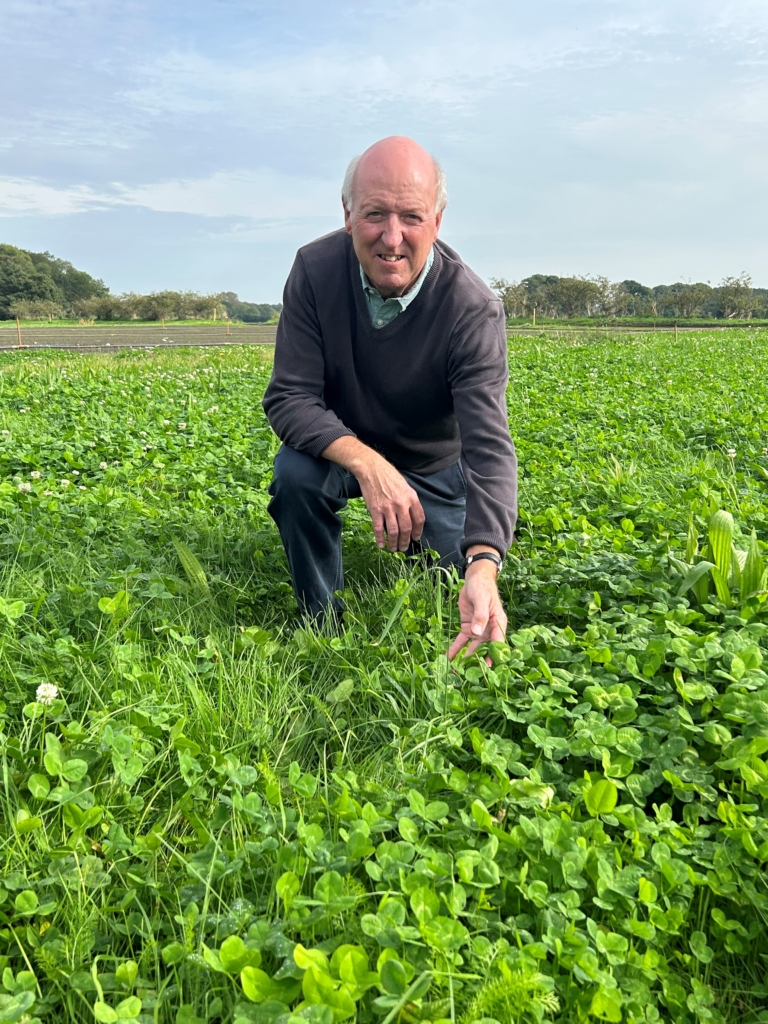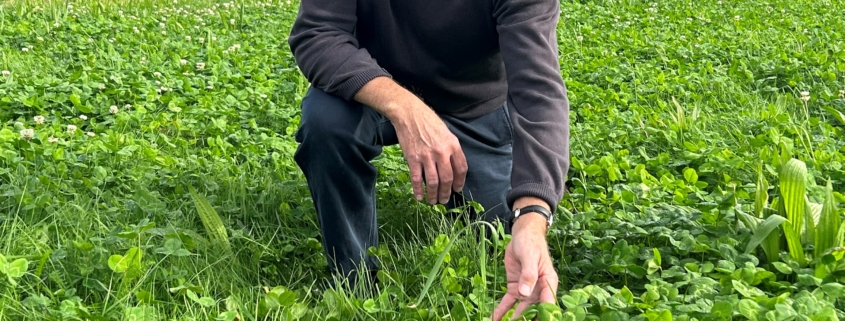New Turf Increases Insect Diversity Five Fold Compared To Conventional Lawn
WITH the growing popularity of initiatives like No Mow May, gardeners are increasingly looking for new ways to optimise biodiversity in their outdoor space.
But one Yorkshire turf grower has launched a new product that will make any lawn irresistible to all-important pollinators, while still being able to withstand the rigours of family life.

New Turf Increases Insect Diversity Five Fold Compared To Conventional Lawn
Lindum Turf, based at Thorganby near York, has created its ‘Species Rich Turf’ – a mixture of wildflowers and grasses which provide a far greater diversity of plant species than an average monoculture lawn.
The turf can be cut short like a conventional lawn, or maintained less often to produce a beautiful tapestry of colour, creating a natural, wildflower meadow effect in a garden.
Crucially, the turf can withstand the day-to-day rigours of children running and playing on it, while increasing the number of insects visiting your garden more than five-fold.
According to Stephen Fell, Managing Director of Lindum Turf, the success of Species Rich Turf is based on the combination of grasses and wildflowers, which are carefully selected to create the desired effect.
Mr Fell said: “We spent a long time experimenting with different combinations of plants. The secret is to select a variety of non-competitive grasses that will withstand being walked on and intersperse these with wildflowers and clovers that don’t grow too high, but will attract plenty of insects.
“Once we had got this right, we realised we’d created a versatile lawn that could replace standard grass, but would vastly increase the biodiversity of the lawn and, by extension, the entire garden.
“If you let this turf grow out a little rather than cutting it back every couple of weeks, it is amazing to see the sheer numbers of butterflies and pollinators it will attract.
Your garden will be buzzing with wildlife.”
Mr Fell added that insect counts carried out on the turf compared to a conventional lawn had revealed the five-fold increase in insect numbers, and an increase in the number of species, particularly bees and butterflies.
He said: “Biodiversity in the UK is critically low and as the vast majority of people don’t own a lot of land, they probably think there isn’t much they can do about it.
“But if you add up all the gardens in the UK, and the green spaces like parks and playing fields, that comes to a huge amount of land spread across cities, suburbs and the countryside.
If everyone did their bit with whatever space they have, that would make a colossal difference.
“That is why we have created Species Rich Turf, to make it as easy as possible for people to make a single change that will have a significant impact.
“Initiative like No Mow May are simply not effective, I’m afraid. Simply letting a monoculture grass lawn grow out for a few weeks make very little difference. Increasing the diversity of plants in your lawn is the answer to increasing biodiversity in your garden. That is how we can all play a role in helping pollinators and other wildlife recover.”
Along with Lindum’s Wildflower Turf, Species Rich Turf is grown on a plastic-free growing medium, meaning unlike many other brands, laying it does not introduce single-use, non-biodegradable plastics into the soil.
Large amounts of turf grown in the UK still utilises a plastic growing mesh to hold the turf together, but once buried, this breaks down into microplastics which pollute the soil and can even get into local watercourses.
Mr Fell described using plastic as ‘incompatible with enhancing the environment’.
“You cannot make environmental claims about turf if you are burying single-use plastics in the soil and letting them degrade into microplastics,” he said.
“That is why we use a 100% natural, non-polluting growing medium. As an industry, we need to be making steps towards protecting our planet, not polluting it further.”
For the latest industry news visit landscapingmatters.co.uk/news
Get all of the big headlines, pictures, opinions and videos on stories that matter to you.
Follow us on Twitter and Instagram for fun, fresh and engaging content.
You can also find us on Facebook for more of your must-see news, features, videos and pictures from Landscaping Matters




